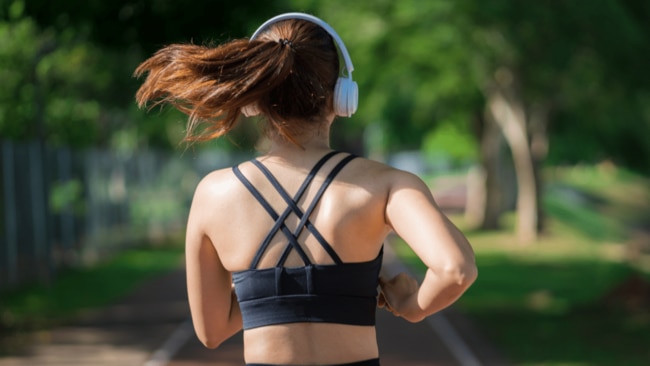If you can't get into running, going slower could be the key
Take your workout down a notch

Lifestyle
Don't miss out on the headlines from Lifestyle. Followed categories will be added to My News.
While most of us generally associate running with speed, according to Kic co-founder Laura Henshaw, there are several benefits of going slower, too.
Recently, I experienced a trifecta of injuries in one week. At the time, I’d been pushing my work and social life to the limits and I suspect it was my body’s way of telling me to slow down. Unfortunately, I found that out the hard way.
I had a bulging disc in my back, which meant I couldn’t run for six weeks. I was devastated because I was on track to running a half marathon. Not only that, running is the number one tool I can count on for my mental health, so I felt pretty lost and overwhelmed without it.
Finally, after six weeks, I was given the green light to return to exercise, so I started our 0-5km KICRUN program and this is when I fell in love with slow running. If you can run, it’s a trend I highly recommend. Instead of focusing on pace or distance, it’s about getting out in the fresh air, mindfully tuning into your body and running at a pace that feels good for you.
Like what you see? Sign up to our bodyandsoul.com.au newsletter for more stories like this.
When learning to run, starting slow is the first tip we’ll share with our Kic community. People assume that going for a run means you have to sprint out the door as far and as fast as you can. But that’s not what it’s about. Over-exerting your body will only lead to exhaustion, injury and let’s be real, dread for your next run.
So, what is slow running?
There is no particular pace that defines what is 'slow' and what is not. Slow running is individual; one person's slow pace is another person's race pace. Perhaps a better way to think of slow running is easy running, or running at a pace you feel you could easily sustain for a long time. It should feel comfortable, and you should be able to hold a conversation (or sing along to your Taylor Swift running playlist).
What are the benefits of slow running?
"It sounds backward, but slow running can help you run faster in the long run (pun intended)," explains physiotherapist Ash Ormond.
"Our body has two main energy systems - aerobic (with oxygen) and anaerobic (without oxygen). When you run hard, or so fast that you’re out of breath, you’re likely running above your body's aerobic threshold. When you don’t aren’t getting enough oxygen in, your body switches from your aerobic system to its anaerobic system. In your anaerobic system, your muscles can’t convert glycogen (energy) as efficiently, leading to fatigue."

Not only that but running all of your runs with a hard effort could contribute to your injury risk, as it places an increased load on your tendons, muscles, bones and joints without allowing sufficient time for those structures to adapt to the load you’re placing on them.
"Running the majority of your runs at a slow, easy pace allows for recovery between your hard runs, which not only could reduce your injury risk but allow you to push harder in your speed or interval efforts," advises Ormond.
Can running slowly help you to run faster?
If your goal is running faster, you need to be running slower. That's not to say all of your runs should be slow, but variety is an important factor in any running program.
"Running at an easy pace for the majority of your runs not only allows you to build a strong aerobic base but will allow your body to be able to go harder in your intervals and race efforts which ultimately is what will support your goal of running faster."
Slow running undoubtedly takes a mindset shift. Many people place too much value on pace and compare themselves to other runners. But it’s important to keep your eyes on the prize and remember that every runner is on their own journey. It doesn’t matter how fast, or how slow you go. If you run, then you are a runner.
More Coverage
Originally published as If you can't get into running, going slower could be the key




